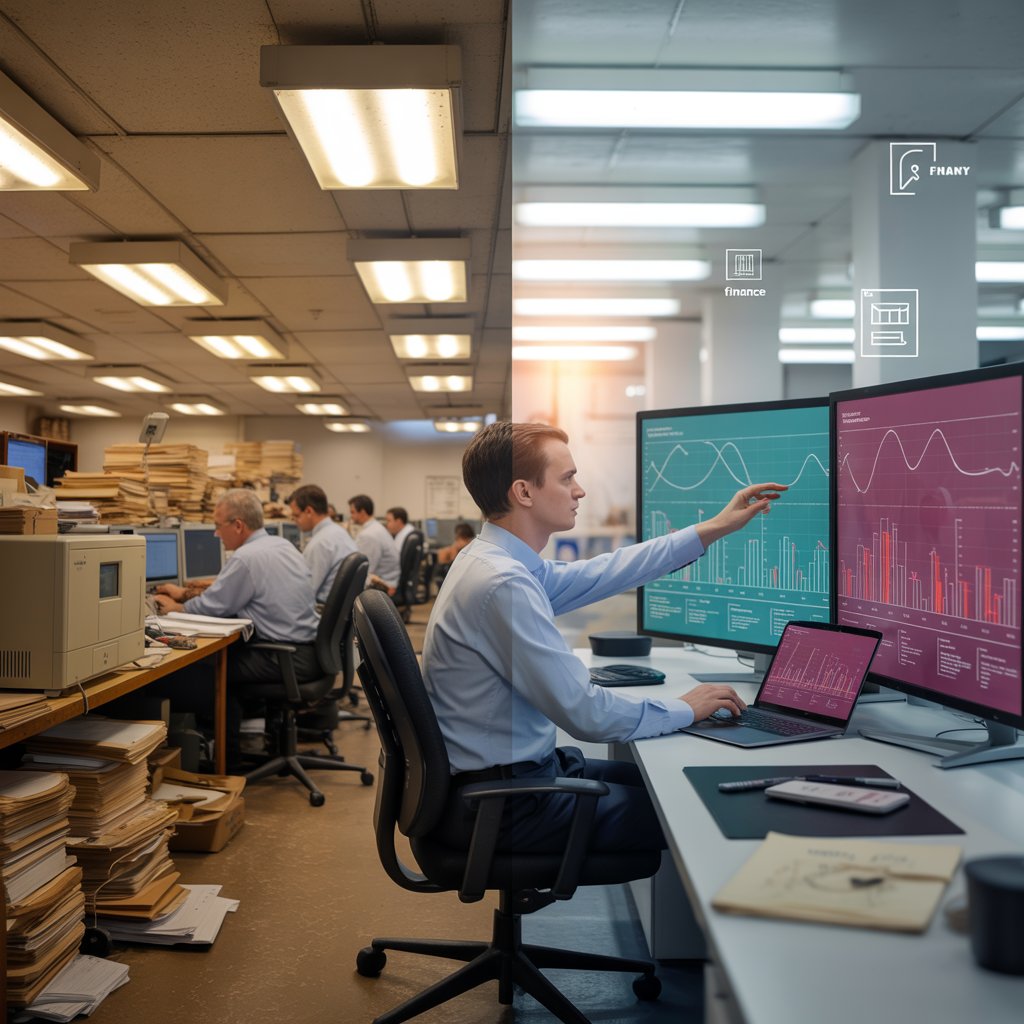Introduction
The transaction advisory landscape is undergoing a significant transformation, driven by technological innovation and changing client expectations. As specialized financial due diligence software, data analytics, and automation reshape traditional processes, advisory firms face both challenges and opportunities. Let's explore how these trends are evolving and what they mean for the future of M&A due diligence.
The Current Technology Transformation
Several technological advances are already reshaping financial due diligence:
- Direct ERP Integration: Automated data extraction replacing manual data collection
- Purpose-Built Analytics: Specialized M&A software replacing generic financial tools
- Visualization Capabilities: Interactive dashboards enhancing data interpretation
- Standardized Methodologies: Consistent analysis frameworks improving reliability
- Collaborative Platforms: Cloud-based solutions enabling real-time team collaboration
These technologies have significantly increased efficiency while improving analytical depth, but they represent just the beginning of a more fundamental shift.
Emerging Trends Reshaping Transaction Advisory
Looking forward, several emerging trends will further transform financial due diligence:
1. AI-Enhanced Analysis
Machine learning algorithms are beginning to:
- Identify anomalies and unusual patterns in financial data
- Predict working capital requirements based on historical patterns
- Flag potential accounting irregularities for further investigation
- Suggest additional analyses based on industry-specific considerations
2. Integrated Due Diligence
The traditional silos between financial, commercial, operational, and legal due diligence are breaking down through:
- Unified data platforms sharing insights across workstreams
- Cross-functional analytics identifying interdependencies
- Standardized findings formats enhancing communication
- Collaborative workflows coordinating expert input
3. Continuous Monitoring vs. Point-in-Time Assessment
The nature of due diligence is evolving from a one-time exercise to an ongoing process:
- Real-time financial monitoring during extended deal timelines
- Post-LOI updates capturing the most current performance
- Integration planning informed by continuous due diligence findings
- Earlier access to financial information accelerating preliminary assessment
4. Enhanced Predictive Capabilities
Forward-looking analytics are becoming increasingly sophisticated:
- Scenario modeling based on granular historical patterns
- Synergy quantification with implementation roadmaps
- Working capital forecasting with sensitivity analysis
- Growth projection validation through statistical modeling
The Impact on Transaction Advisory Professionals
These technological advances are reshaping the role of transaction advisors:
1. Evolving Skill Requirements
Successful advisors increasingly need:
- Data interpretation skills beyond basic financial analysis
- Technology fluency to leverage advanced tools effectively
- Industry-specific expertise to provide contextual insights
- Strategic advisory capabilities beyond technical findings
2. Changing Service Models
Advisory firms are adapting their service delivery through:
- Technology-enabled services with differentiated pricing
- Specialized analytics packages focused on specific industries or transaction types
- Hybrid staffing models combining technology and human expertise
- Subscription-based access to proprietary analytics platforms
3. Competitive Differentiation
The competitive landscape is shifting as:
- Technology capabilities become critical differentiators
- Specialized boutiques leverage technology to compete with larger firms
- Traditional labor arbitrage advantages decrease in importance
- Speed-to-insight becomes a key selection factor for clients
Preparing for the Future: Strategic Priorities
For transaction advisory professionals preparing for this evolving landscape, several strategic priorities emerge:
- Embrace purpose-built technology: Invest in specialized tools designed for financial due diligence
- Develop data interpretation skills: Focus on translating analytics into actionable insights
- Standardize methodologies: Create consistent frameworks that leverage technological capabilities
- Redesign workflows: Build processes that combine human expertise with technological efficiency
- Evolve service offerings: Develop new advisory services enhanced by technological capabilities
Conclusion
The future of M&A due diligence lies at the intersection of specialized technology and expert human judgment. By embracing purpose-built technology solutions, transaction advisors can deliver deeper insights in less time while focusing their expertise on interpretation and strategic guidance. Those who successfully navigate this transformation will be positioned to deliver exceptional value in an increasingly competitive advisory landscape.



